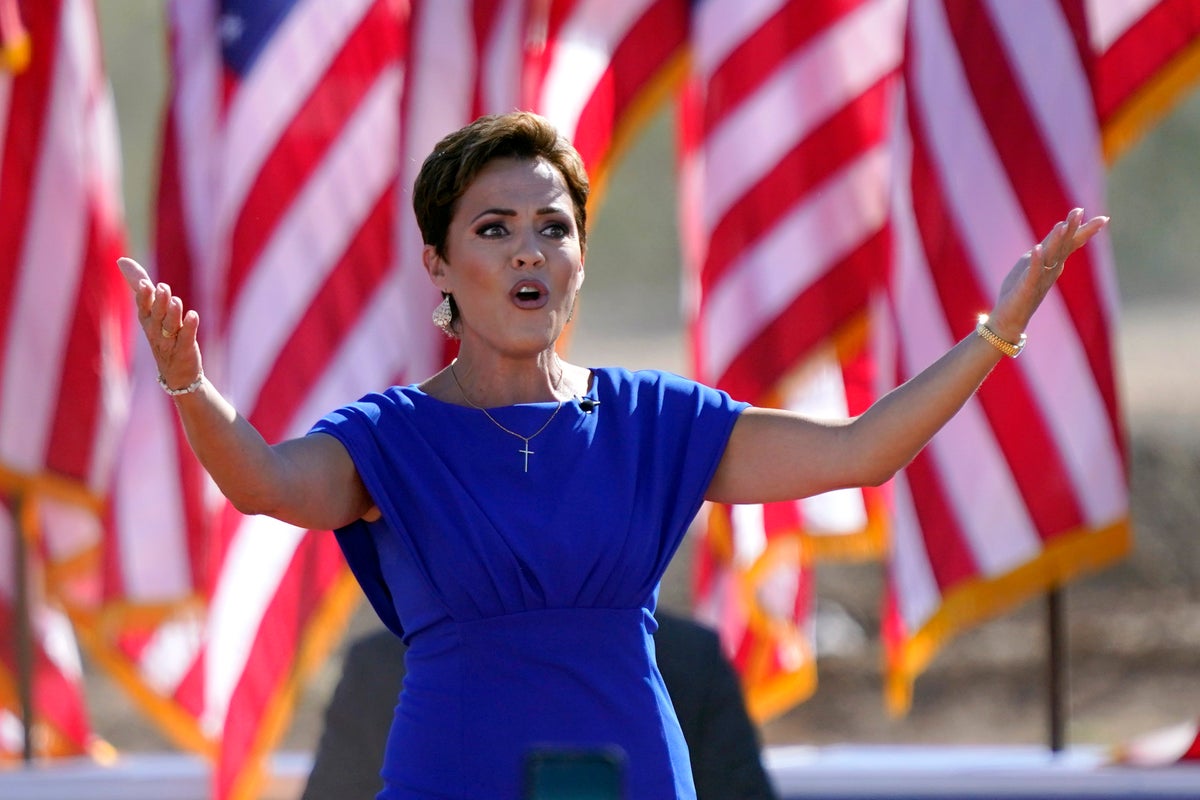
An official from a rural Arizona county who has been tapped to hand-count all the ballots from next week's election was grilled in court Friday by lawyers representing a group of retirees suing to block the effort.
Cochise County Recorder David Stevens said he has plans to count four races on about 40,000 ballots using more than 250 volunteers he's recruited from three political parties starting after voting ends Tuesday. The Republican vowed to follow the law on how the much smaller hand-count audits are normally done to check machine vote-counting equipment. But he acknowledged he's bypassing the county elections director, who by law oversees the process and is responsible for holding the ballots.
And responding to questions from the lawyer for the Arizona Alliance of Retired Americans, Lalitha Madduri, Stevens said he planned to count an estimated 30,000 early ballots despite provisions in the law that limit early ballot hand-count audits to 1% or 5,000 ballots, whatever is less, and that they be randomly selected. That bars a full count of the early votes, she said.
“The board did authorize me to do it,” Stevens said. “The court will decide if it’s legal or not. But they did vote, it was a two-to-one vote, they voted for me to do this and a 100% count.”
The two Republican supervisors who voted to do the 100% hand-count rather than the small sample done in every other election were pushed to do so by people who believe former President Donald Trump's unfounded claims that fraud or counting problems with voting machines led to his loss in 2020. The lone Democrat on the board opposed the hand-count.
Pima County Superior Court Judge Casey F. McGinley, who is hearing the case in Bisbee after the local county court declared a conflict, is charged with deciding whether the detailed state law on hand-count audits allows the Cochise County board of supervisors to expand the count to all early ballots. Democratic Secretary of State Katie Hobbs, who is running for governor, contends early ballots can't all be counted under state law.
Republican Attorney General Mark Brnovich, however, issued an informal opinion last week that said all the ballots can be hand-counted.
McGinley questioned Stevens about the normal recount rules and focused on a section of the election rules written by the secretary of state that allows counties to expand the hand-count at their discretion, which appears nowhere in the law. And he wondered how rules on acceptable margins of errors between hand-count audits would apply to a full recount.
Stevens said his view was that a full hand-count needs no margin and that whatever that count turned out to be would be the one that was officially certified. That runs counter to what the board discussed when it decided to do a full hand-count as a test of the official machine count.
Stephani Stephenson, who lives in the small Cochise County community of St. David and is the named plaintiff in the case, testified that what she called a rushed and abnormal process would potentially jeopardize her vote. She said she has faith in the current system.
“I know that people have worked years to come up with a process,” Stephenson said. “And then suddenly if my county is going down this other road, at this point, no, I do not trust that.”
McGinley was continuing to take testimony at mid-afternoon Friday and has not said when he might rule. Time is of the essence, because Stevens said he want to start hand-counts in about a week.
____
Follow AP’s coverage of the elections at: https://apnews.com/hub/2022-midterm-elections
Check out https://apnews.com/hub/explaining-the-elections to learn more about the issues and factors at play in the 2022 midterm elections.







